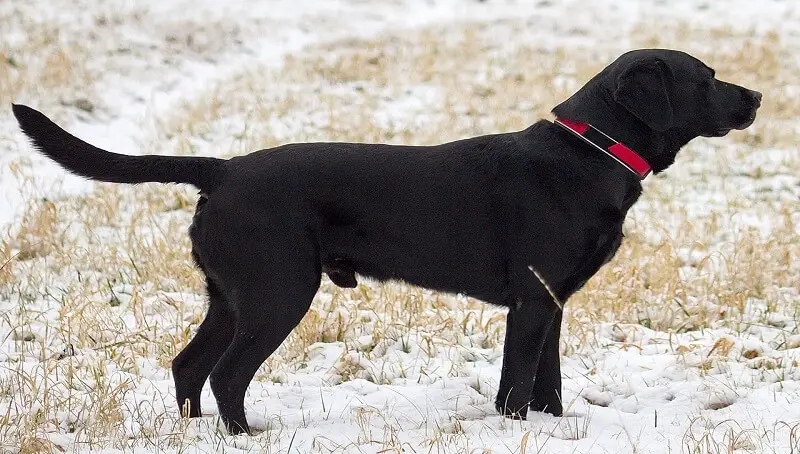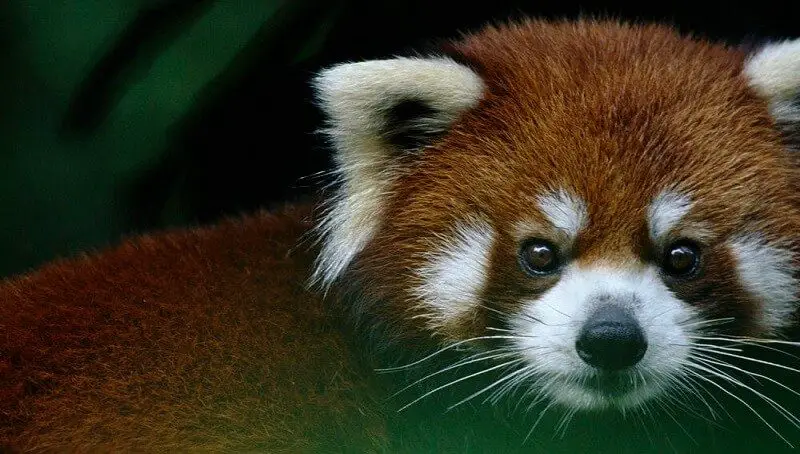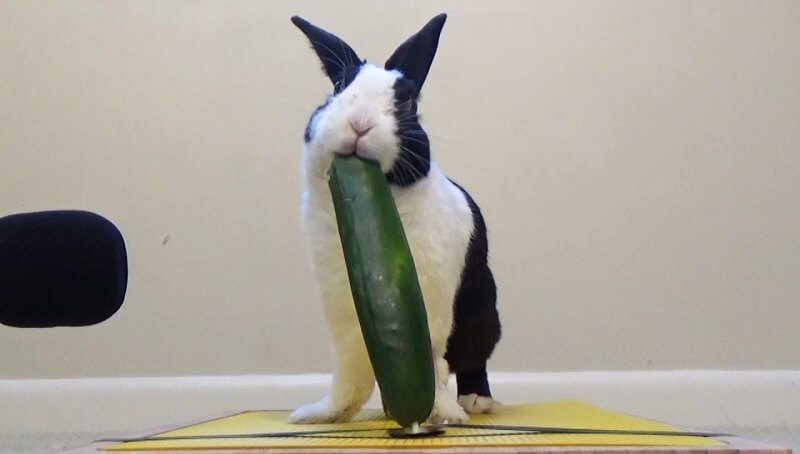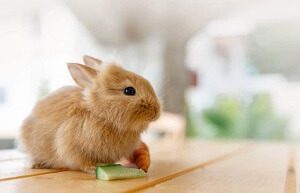
Labrador Retrievers – Facts About These Amazing Dogs
July 31, 2022
Different Types of Pandas
August 2, 2022
Balanced nutrition is the key to the strong immunity of pets. Owners are often concerned about the impact of various foods on the health of pets. One of the most frequent questions is whether it is possible to give cucumbers to rabbits.
Yes, it is healthy, and rabbits can eat cucumbers. They can eat a limited amount and in a moderate manner. Cucumber provides rabbits with essential vitamins and minerals, along with rich fiber and a very limited amount of sugar, which is safe to eat up to a point. On average, a rabbit should be fed three different types of fresh vegetables as part of its daily diet. Cucumbers are low in calories, filled with water content, and also contain vitamin C in traceable amounts. Rabbits can eat about two to three slices a week.
Cucumbers are technically a fruit as they have seeds in them, but they are mostly used as vegetables in salads. In addition to being a source of essential minerals, cucumbers also contain little sugar, which means you should feed your rabbit cucumbers as an evening snack in a limited amount. Rabbits, like all other animals, need a certain amount of vitamins and minerals to maintain the well-functioning of their internal and external organs.
Can I feed my rabbit with all types of cucumber?
Cucumbers are largely non-toxic to rabbits; they have some health benefits and a taste that rabbits enjoy. Cucumbers are also very high in fiber, which rabbits need in abundance. However, cucumbers also contain a very high percentage of water content, which may not always be healthy for this pet.
Besides nutrients, cucumbers contain a lot of water. Breeders believe that fresh cucumbers will not harm the health of ordinary and pet rabbits.
But in order for a juicy green vegetable to be beneficial, a few recommendations must be followed:
- The diet should include only organic fruits, without nitrates or other impurities.
- Cucumbers should be used as snacks and should not replace the main meal.
Salted or pickled vegetables are contraindicated in rabbits. In combination with food additives, such products, which enter the body, cause poisoning and can be lethal for the animal. Even a slight addition of top dressing will negatively affect the welfare of fur animals.
Effects of high salt intake on rabbits:
- the appearance of allergic reactions;
- malfunctions of the urinary system, especially of the kidneys;
- liver disease, which can lead to cirrhosis.
Even in winter, when there is a shortage of vegetables, you should not try to diversify the diet of animals with such foods.
Benefits of cucumbers in rabbits
Cucumbers not only help their digestive system work more efficiently but also keep their organs and internal functioning intact. So, if you need to fill your rabbits’ diet with nutrients, vitamins, and fiber, feed them with cucumbers and other green vegetables, as they are good for their health. Ideally, cucumbers can be fed to rabbits two to three times a week, with an interval of at least two days, starting with small pieces of cucumbers. Their daily proportion of cucumbers should be no more than one slice each day.
You might also like my articles on where rabbits live and on whether rabbits can eat cabbage or raspberries.
All the useful elements of a green vegetable are easily absorbed by the body. This is important for rabbits because of coprophagia. The habit when animals eat their excrement is mostly associated with the structure of their gastrointestinal tract. Food is not digested the first time, so the process must be repeated.
The vegetable has about 96% water. The inclusion of cucumbers in the diet offers the rabbit vitamins B, C, and K. The fiber in cucumbers is only 0,5%.
This amount is not enough for good nutrition, but enough for feeding. The composition also includes other macro- and microelements.
Chemical elements contained in 100 grams of cucumber (mg):
- Potassium 145 – has a positive effect on the condition of the heart and nervous system.
- Phosphorus 25 – strengthens bone tissue.
- Calcium 15 – promotes the formation of the skeleton and teeth.
- Magnesium 13 – prevents muscle cramps.
The regular addition of vegetables to food has a beneficial effect on the health of pets. Cucumbers not only diversify the diet but also improve the general welfare of animals, making the fur thick and fluffy. Green fruits are especially useful for pet rabbits.
How to offer cucumbers to rabbits?
You cannot give a lot of cucumbers to your pet all at once. The vegetable supplement is introduced into the diet gradually.
Pet adult rabbits are given no more than 50 grams of cucumbers per day, while to other breeds are given up to 100 grams.
Basic guidelines for feeding rabbits:
- use only fresh fruit without damage and mold;
- cucumbers should be washed and dried;
- cut the vegetables into small slices;
- the best time to offer cucumbers is lunch.
You can give a salad to your pet. To do this, 20% of the cucumber is mixed with other vegetables or hay. If the rabbit refuses to eat cucumbers, the supplement is reintroduced after a week.
It is important to carefully remove the food dish when the rabbits have finished eating. Otherwise, food debris will go bad and may harm the animals.
Youngster rabbits are given cucumbers only in minced form. The first feeding of young animals is carried out at the age of 4 months. During this period, the youngster’s body is already able to digest heavier foods. Recommendations apply to all breeds of rabbits.
If the animal has a weak stomach, the introduction of the cucumbers is postponed for 1 or 2 months.
Contraindications in feeding cucumbers to rabbits
However, the disadvantage of feeding rabbits with vegetables that contain large amounts of water is that it can cause them to have free cecotrophy, making them harder to digest, especially for a small rabbit pet. As a result of this, a rabbit can have digestive disorders and diarrhea in most cases. Therefore, it is essential that all owners and breeders feed their pet rabbits with cucumbers in strict moderation and familiarize them with the food in a constant way, instead of feeding them in bulk all at once.
Cucumbers, like any other food, are advantageous when offered in moderation. In large doses, the vegetable will cause diarrhea and worsen the condition of the pet. Here are some cases in which you shouldn’t feed cucumbers to rabbits:
- if the fruit was purchased in a supermarket or greenhouse where the vegetables are treated with chemicals;
- with individual intolerance to the product;
- under the age of 4 months.
Vegetables will harm the body:
- if the fruit is damaged, dirty or wet;
- when the diet consists only of cucumbers.
Can rabbits eat cucumber peels?
As humans, we tend not to eat peels or cucumber skin because we find it hard to chew them compared to the softer portion inside with the seeds. However, this is different for rabbits.
A rabbit will chew the cucumber peels and digest them very easily. Cucumber skin has a high fiber content along with other nutrients and comparatively lower water content. Also, because the cucumber peels are a little harder than the rest of the cucumber, they also help to mend the rabbit’s teeth. Without major health risks, except overeating leading to possible obesity, eating cucumber peels is safe for rabbits, and this fruit can be included in a rabbit’s diet.
However, regardless of all the advantages, if your rabbits eat quite often cucumber skins, you need to be careful. These peels should be very well washed and cleaned, eliminating any possibility of contamination. These cucumber peels should be fresh and recently peeled from a good quality cucumber. Old peels can cause food poisoning and digestion problems in rabbits.
The following list contains foods that are considered safe for the rabbit:
Vegetables:
- Asparagus
- Small corn – baby sweetcorn
- Beetroot
- Broccoli and its leaves
- Brussels sprouts leaves and buds
- Cabbage
- Carrots and carrot leaves
- Cauliflower and leaves
- Celery and its leaves
- Parsnips
- Pumpkin
- Radish leaves
- Zucchini
Fruits – should be given without seeds, occasionally, and in small quantities, because they contain a lot of sugar:
- Apple
- Apricot
- Banana without shell
- Blackberries and leaves
- Currants
- Cherries
- Grapes
- Kiwi
- Mango
- Watermelon
- Nectarines
- Oranges without shell
- Papaya
- Peaches
- Pears
- Pineapples without peel
- Plums
- Raspberries and leaves
- Strawberries and leaves
- Tomato
What foods are toxic to rabbits?
 A rabbit has a very sensitive internal structure with an equally delicate digestive and immune system. Their diet should be carefully cared for and should not include such foods that can affect their internal functioning.
A rabbit has a very sensitive internal structure with an equally delicate digestive and immune system. Their diet should be carefully cared for and should not include such foods that can affect their internal functioning.
On one hand, there are certain foods that are good for a rabbit if its owner or breeder feeds it in a measured amount and in a gradual manner. On the other hand, there are some foods that are dangerous for a rabbit. Their consumption can even be lethal.
In general, rabbits eat cucumbers, cucumber peel, cucumber seeds, leafy vegetables, and hay which help improve their health if eaten in small amounts. If, however, pet owners and breeders end up feeding these foods as part of the usual diet of rabbits, not as a treat, they will make rabbits prone to severe internal collapse. Similarly, feeding rabbits with highly toxic foods such as fruit seeds, corn, bread, pasta, cereals, and nuts, among many others, even in small amounts, can be risky for their lives.
The question of whether rabbits can eat cucumbers should no longer be a doubt in the minds of new pet owners and beginner breeders since cucumbers are not toxic to rabbits. Rabbits can’t just eat cucumbers; they can also eat cucumber seeds and skin, and eating them as a usual snack only ensures a sufficient intake of vitamins and other essential nutrients in their body.
Veterinarians also prohibit adding new foods to animal diets when green fruits are tasted for the first time. Cucumbers will not harm rabbits if you follow the rules of feeding. It is important to follow the measure and remember that vegetables are not the main food. The food should be balanced for the pet to be healthy.
